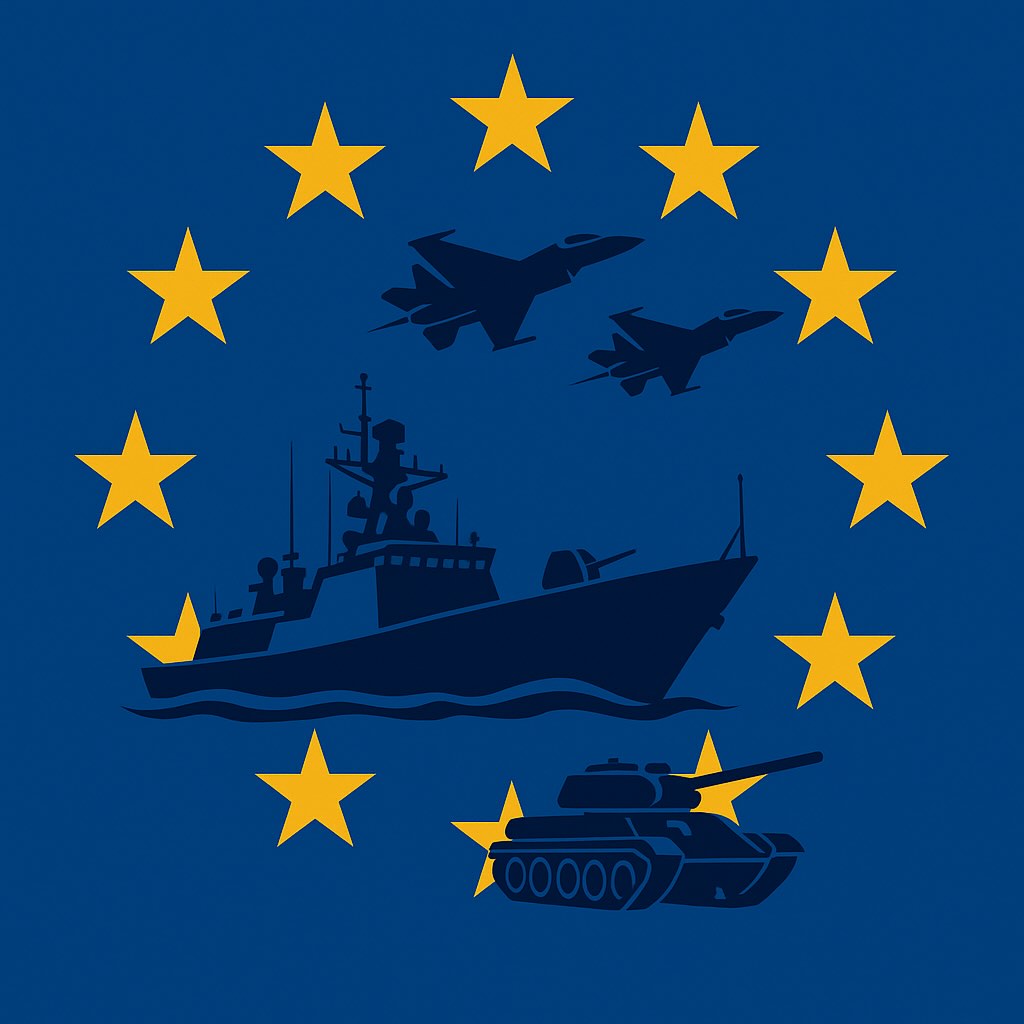


At the heart of this latest fantasy lies a deceptively simple idea: pool defence procurement across the bloc, cut costs, and boost capability. The concept was floated with academic flair by Jeromin Zettelmeyer, head of the influential Bruegel think tank, in a recent interview with the Financial Times. The vision? A centralised European system where defence contracts are no longer subject to the squabbles of 27 national capitals, but disbursed from Brussels with technocratic precision.
It sounds elegant on paper. After all, the EU’s sprawling patchwork of armies and suppliers leads to astonishing inefficiencies. Europe operates a dizzying 17 different main battle tanks, compared to one in the United States. Ammunition standards vary wildly, maintenance cycles differ, and coordination is often an afterthought. No wonder Ukraine has received fragmented aid in piecemeal fashion.
Mr Zettelmeyer argues, not unreasonably, that this chaos could be brought to heel by creating something akin to the single market that underpins the EU’s economic engine. If it worked for dairy quotas and cross-border banking, why not for missiles, radar systems, and drone swarms? But that is where the realism ends and federalist idealism begins.
A key pillar of his proposal is not merely coordination, but the issuance of common EU debt to fund it—what some in Brussels have already begun calling “Eurobonds for war”. The idea of borrowing collectively to arm collectively, he suggests, would not only increase scale but serve as a grand project for unity, tying the fate of the continent’s security to the Brussels machine.
Therein lies the problem. Europe’s history is not one of easy military consensus. From Suez to Kosovo, Iraq to Libya, the notion that 27 nations with different histories, enemies, and geostrategic priorities will agree on defence spending—let alone shared borrowing—is optimistic at best, naïve at worst.
Already, national governments are bristling. French defence contractors, long cosseted by Parisian industrial policy, view such schemes as a threat to their privileged market. Germany, despite its post-Ukraine promises, has shown little appetite for ceding defence procurement powers to Brussels. Italy’s struggling economy is unlikely to cheer joint debt issuance that benefits its more hawkish northern neighbours.
More fundamentally, Europe’s defence is not built on EU treaties, but on NATO. Any suggestion that Brussels, with its notoriously sluggish decision-making and culture of consensus-by-committee, should displace the Atlantic alliance as Europe’s shield is both dangerous and dishonest. The fact that this proposal comes with Donald Trump back in the White House—fuelling legitimate fears of a weakened NATO—makes the push for EU-level defence even more suspect. It looks less like pragmatism and more like opportunism.
Indeed, the notion that Europe can simply legislate or finance its way to security ignores a critical truth: power projection requires will, not just wallets. The EU, for all its commissions and councils, lacks both a unified foreign policy and a credible deterrent posture. The half-hearted reaction to Russian aggression, the dithering over arms to Ukraine, and the enduring absence of deployable EU battlegroups underscore just how far it is from anything resembling a defence union.
Moreover, joint EU procurement risks repeating the errors of previous industrial strategies—excessive bureaucracy, opaque tendering, and politically skewed outcomes. Ask any European aerospace executive about the Airbus A400M transport aircraft programme and you will hear a saga of budget overruns, delivery delays, and political compromise. Imagine replicating that mess for munitions or missile systems.
Perhaps the most chilling element is the democratic deficit. National defence remains one of the last bastions of state sovereignty—rightly so, for it is a government’s solemn duty to defend its people. Handing that responsibility to an unelected European Commission, in the name of “efficiency”, strips away national accountability. Who answers when procurement fails? When funding dries up? When a factory in Warsaw wins a bid over one in Marseille? The EU’s answer, as ever, is “solidarity”. But that has proven to be a fair-weather friend in crises past.
None of this is to deny the urgent need for better coordination. European security is in a parlous state. But the answer is not to bulldoze national defence industries in pursuit of a paper tiger in Brussels. A smarter approach would encourage interoperability, invest in joint exercises, and revive bilateral alliances—the recent UK-Germany defence pact is a case in point.
The EU’s obsession with centralisation risks doing more harm than good. In its pursuit of unity, it may end up alienating the very member states it hopes to bind together. Dreams of a single market for defence may appeal to the Brussels elite, but the defence of Europe cannot be built on dreams. It must be rooted in realism, sovereignty, and above all—trust. And that cannot be bought with Eurobonds.
If Russia Wins: A Scenario and the Logic of the West’s Managed Defeat